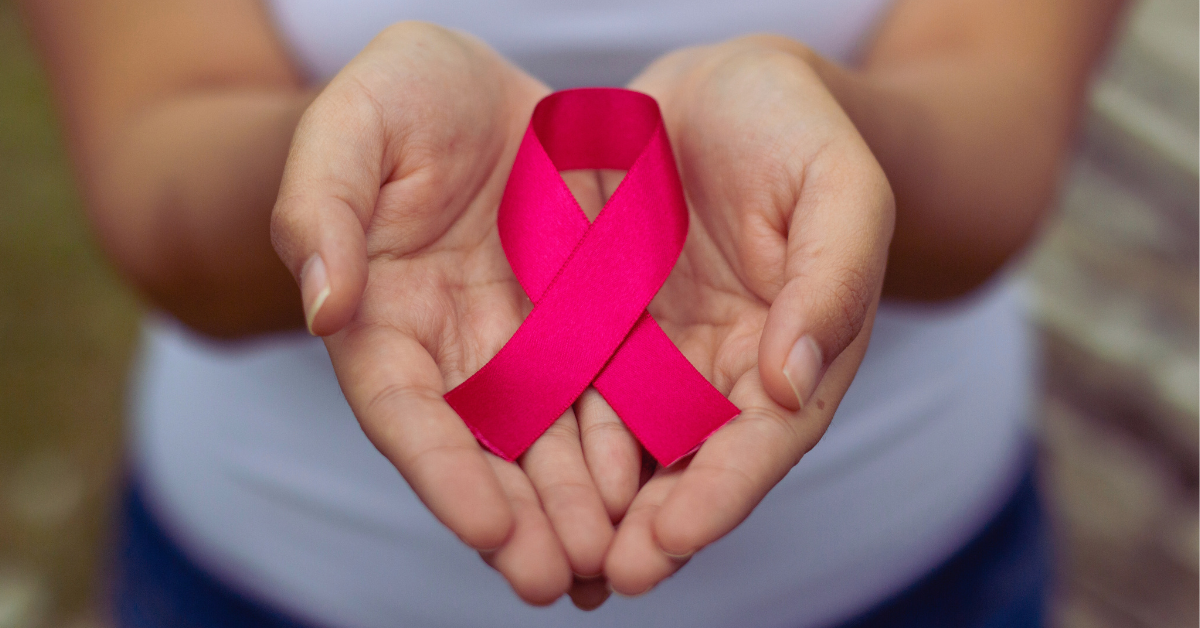According to the National Breast Cancer foundation, more than 360,000 people will be diagnosed with breast cancer in 2024. That’s more than 700 diagnosed, every single day.
Thankfully, advancements in early detection methods and support continue to increase survival rates. That’s why October is Breast Cancer Awareness Month, an annual campaign meant to raise awareness about breast cancer, promote early detection, and support those affected. Despite the prevalence of this disease, there is hope!
This month, we were honored to interview Judith Dolgin, STARLIMS General Counsel and breast cancer survivor, to learn about her journey with diagnosis, treatment, and recovery. Judith openly shares her story, providing valuable advice about the process and wisdom for finding strength during treatment and recovery. We’re honored to do our part alongside Judith in spotlighting this disease, raising awareness, and providing information on early detection.
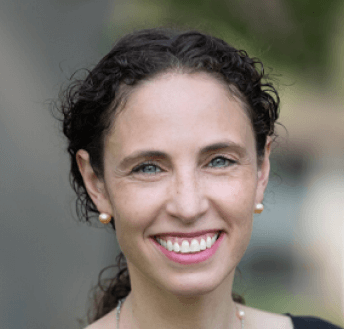
Together, we hope to encourage patients to advocate for the best care for themselves and encourage hope for the future when it comes to cancer detection, treatment, and therapies.
Hi Judith, thanks for discussing this topic with me today. Can you tell me a bit about your personal journey with being diagnosed with breast cancer?
Judith Dolgin: Sure, I’m happy to. I was first diagnosed with breast cancer in 2015, when I was 33 years old. I was nursing my then-13-month-old baby when I found a small lump. My mother had died of breast cancer when I was six years-old, so I knew not to ignore it and called to schedule a mammogram (more on that later).
I went through treatment, which included chemotherapy and a full mastectomy, followed by years of estrogen-blocking medication. Despite the treatment, another cancer developed in microscopic residual breast tissue in 2022. I’m an open book, so I’m happy to fill in the details as we go through this interview.
What was your reaction to the diagnosis and how did you process that news?
Judith Dolgin: The diagnosis of the first cancer in 2015 was traumatic and dizzying.
After finding the lump, I called to schedule a mammogram at a major Boston hospital. The hospital required prior records from my general practitioner, part of a different medical system, and scheduled my mammogram for two weeks’ out.
In the meantime, I went to an appointment with that GP. She felt the lump and said to me “Oh that? That’s just a cyst – see how it moves? Cancer doesn’t do that. Don’t worry, you’re not going to be your mother.”
I was so reassured that I almost cancelled the mammogram. I didn’t, but I did show up to the mammogram expecting only good news. I was totally unprepared for what came next.
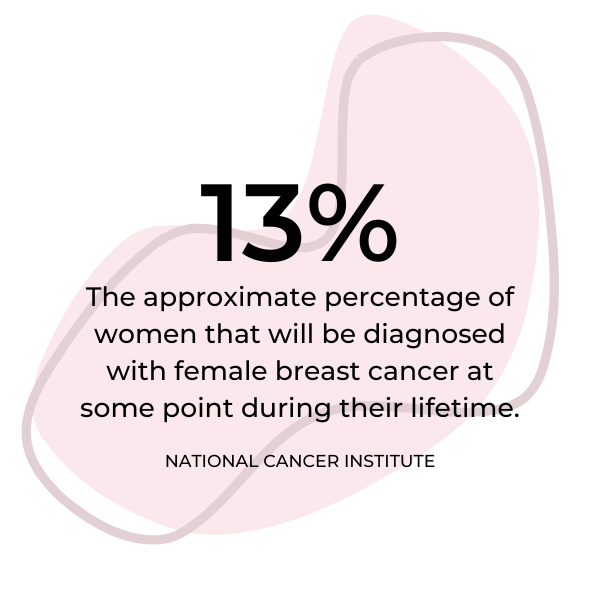
After an initial mammogram, they called me in a few minutes later for a second one. The technician explained that there was “calcification” in the tissue of my left breast, which, as a nursing mom, I took to mean a build-up of milk. Then, though, they took me for an ultrasound. During the ultrasound, a resident asked “So, was your mother’s cancer very aggressive?” I was definitely no longer feeling assured.
The doctors who did the ultrasound told me to wait for a surgeon, who would perform a fine needle aspiration. A fine needle aspiration is sort of an abridged biopsy – it’s a tissue extraction procedure that can detect malignancy, but not much other than that. At that point, I was reeling. I called my sister and husband, who came to the hospital.
The surgeon walked in to perform the fine needle aspiration. She really nailed bedside manner, noting that I “seemed anxious,” giving me an anxiety pill, and performing the procedure.
Several minutes later she returned to tell me, matter-of-factly, that I had breast cancer, that it was early stage, that I would be cured by a full mastectomy and that her staff would call to schedule it. She then left the room. It was a Friday, and I spent the weekend identifying where I wanted to be treated.
I’m going to call out a few elements of the surgeon’s advice that I now know to be medically unsound, in the hope that it may help someone:
- The evaluation of the tissue sample that she had collected a few minutes prior was insufficient to determine stage, level of aggression, or type of breast cancer. Each of these is critical to developing an appropriate treatment plan.
- If you are diagnosed with breast cancer, you should meet with a medical oncologist to define your treatment plan. Surgery is very likely to be a component of your treatment, but only a medical oncologist, having fully evaluated the specifics of your cancer, should define your plan, in collaboration with you as the patient.
- It is not always necessary to do a full mastectomy (remove both breasts), when cancer is detected in only one breast and you do not have a genetic mutation. Again, the determination of what appropriate treatment looks like is a discussion and decision between a medical oncologist and the patient, informed by the specifics of the cancer.
- Telling a patient that you will “cure” them, without knowing the specifics of their cancer, is wrong.
I want to call this out, because it happens all the time. I just got off the phone with an acquaintance (let’s call her “R”) who, earlier this week, was told by a surgeon within the same medical practice that she had breast cancer, that they’d remove both breasts, and that she wouldn’t need chemo. The surgeon had not connected R with a medical oncologist, nor had she presented R with treatment options and discussed them with her. R had not even been told what a medical oncologist is. After R and I spoke, she connected with a medical oncologist and has an appointment scheduled with her.
If you’re still reading, please take as a lesson that you need to advocate for yourself as a patient or for your loved ones. Ask questions, ask for diagnostics, and keep asking until you receive the answers that you need and the care that you deserve.
Ask questions, ask for diagnostics, and keep asking until you receive the answers that you need and the care that you deserve.
I was incredibly fortunate that an expert medical breast oncologist at a major cancer center agreed to meet with me early Monday morning. The first step was a proper biopsy. I was fortunate – the cancer, while aggressive, was very early-stage, with a defined treatment protocol.
Nonetheless, the diagnosis turned my and my family’s life upside down. As scary as was the cancer diagnosis, though, it was learning weeks later that I have a genetic mutation that predisposes me to certain types of cancer that really terrified me. I was a young mom and learning that I may have passed on such a horrible gene to my perfect, wonderful baby was incredibly difficult to process. I’m still not done.
In 2022, my husband was poking me while we were watching tv and felt a lump. Despite my prior history, diagnosis wasn’t less confusing this time. I immediately emailed my oncologist, who scheduled a same-week ultrasound for me. The ultrasound doctor read the lump as “fat necrosis,” a benign condition. Yay!!!
To be safe, I asked for a biopsy, and was again able to get a same-week appointment. After scheduling the biopsy, I went upstairs to my oncologist for a physical exam. My oncologist assured me that a doctor won’t diagnosis a mass as fat necrosis unless they are really darn sure. Upon feeling the lump, she then said “that’s too small to be cancer, but I guess it won’t hurt for you to do the biopsy.”
I felt a little like I was wasting the hospital’s resources in having the biopsy, but have it I did. The following week, I saw my doctor’s number on caller ID. I knew what that meant and was terrified. I now had two kids, and didn’t want to leave two kids motherless. Fortunately, the cancer was again very early stage.
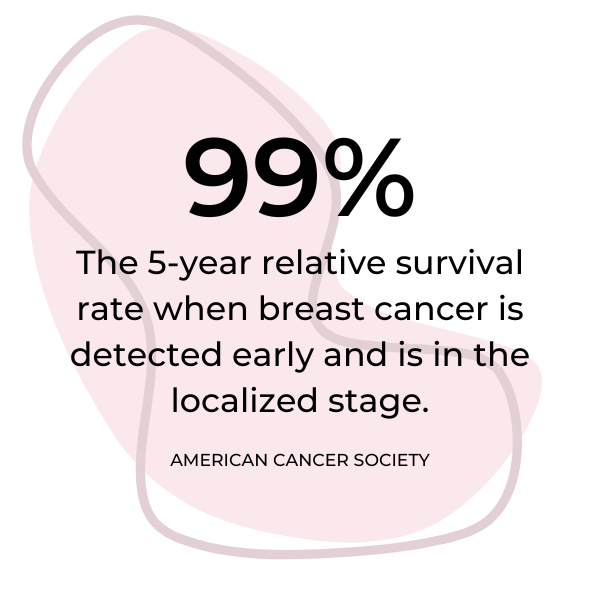
How did your diagnosis impact your daily life, both physically and emotionally?
Judith Dolgin: How did it not? Each time, it turned everything upside down for me and my family. The treatments (chemo, mastectomy and hormone therapy for the first cancer and lumpectomy, radiation, oophorectomy, a chemo pill and hormone treatment for the second) were hard to endure, with impacts that will last a lifetime, physically and emotionally.
Had you or your family members been assessed for breast cancer risk prior to your diagnosis?
Judith Dolgin: My mom died of breast cancer when I was six. Her mom had died of breast cancer when my mom was 18. My maternal aunt also had early-onset breast cancer, but survived. She tested negative for any mutation when I was in college. My sister, who is 7-years older than I am, had written a psychology dissertation on how doctors treat patients who don’t have cancer but who have a genetic mutation—one doctor told her that they wanted their patient’s ovaries in a jar.
I had met with a genetics counselor in my twenties who railed me for not having been tested and not going in for regular mammograms. That visit had a deterrent effect on me –I was young, and I didn’t want to have surgery that I felt would prevent me from loving my body, finding a partner who would, and having children on my own. I took reassurance from my aunt’s lack of a detected mutation and in having an older sister who had not developed cancer. So, I made the decision to not test for a genetic mutation. Once I was diagnosed, other adult members of my family, immediate and extended, did decide to test.
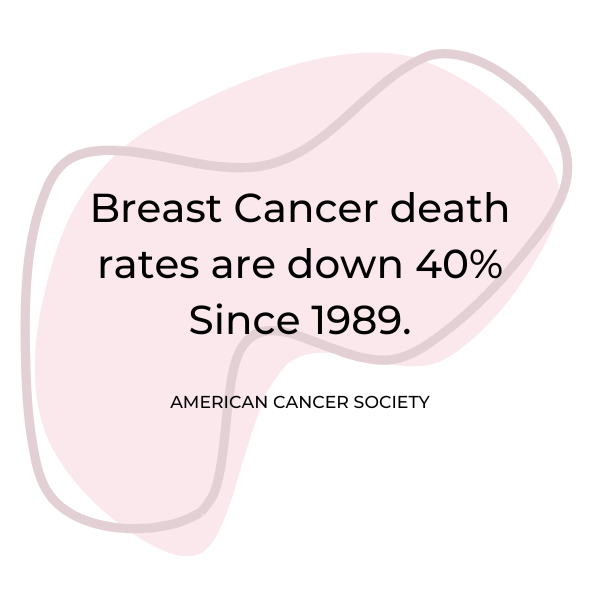
You would think that in hindsight, I would be kicking my younger self. But it’s still not so clear-cut. I married a man who set my heart on fire when I was 31 and had the immense privilege of nursing my first baby until she was 13-months old. I now have a second healthy child. (If anyone has continued to read from the beginning, you may wonder why I decided to have a second child. My oncologist assured me that by the time my kids were old enough to develop cancer, the detection and treatment would be radically different. May it be.
Can you describe your treatment journey? Were there any unexpected challenges or silver linings during treatment?
Judith Dolgin: First Cancer: My treatment started with a complete mastectomy. During the mastectomy, the surgeon inserted tissue expanders to lay the groundwork for later breast reconstruction. When I woke up from the mastectomy, it was as though the pain had knocked the wind out of me. While I was still recovering from the mastectomy, I had four rounds of AC chemo, followed by years of a daily pill called Tamoxifen, intended to reduce estrogen levels in my body (my cancer, known as “ER-positive,” fed off estrogen).
With the second cancer, I had a lumpectomy, followed by radiation, followed by an oophorectomy, followed by a year of a newly-developed chemo-lite drug specifically developed for cancers in patients with the type of genetic mutation that I have. I’m now on an aromatase inhibitor, which, in addition to the removal of my ovaries, further prevents my body from creating estrogen.
At this point in reading you may be surprised to learn that I have limits to what I am willing to share publicly, but shockingly, I do! So I won’t go into the unexpected challenges. As for silver linings, there was the support that I got from family, friends and acquaintances. It takes a village, I had a village, and I am so profoundly grateful for my village.
What kind of support system did you have throughout your treatment ? In what was did it help? Did anyone say anything that particularly helped you during your treatment?
Judith Dolgin: I will try to describe my village, but I don’t have the words to do so. I’ve re-written this response many times, fearful that I leave someone feeling underappreciated. I had a giant community made up of immediate family, extended family, friends and acquaintances who showed up in a myriad of ways.
They traveled (including across continents) to hold me and to care for me and my family. One cousin came from Israel for two weeks to take care of me and my daughter after my mastectomy. They cooked for us, and organized meal trains and a private chef for us. They introduced me to doctors who had treated their own loved ones.
They took me to appointments, and bought me button-down shirts, and pajamas, and hats, and scarves, and socks that made me smile. They held my hands as a hairdresser shaved off what was left of my hair. They pumped breast milk for me so that my second child could have that liquid gold. They went grocery shopping. They visited and called and texted and emailed, and understood when I didn’t respond. They were my mother’s helpers. They included my father, sister, and brother, were hell-bent on getting me through this cancer, and showed it in so many ways.
Then there was my husband, who nursed me through two cancers, raised two kids, worked, cooked, cleaned, shielded me from stress, and loved me. I am forever grateful to each member of my village.
During a really hard day, a friend said something incredibly helpful. She had driven from Connecticut to hold me in bed after my first chemo treatment. I told her that I didn’t know how I would get through the pain of treatment. She told me to just get through that minute and the next. A minute was something I could process, and that became my mantra. I think of that moment often.
What does life look like for you now, as a survivor of breast cancer? Has your perspective on life changed?
Judith Dolgin: Life looks pretty normal for me. I have my family, a career, we’re renovating our house, and overall, I’m incredibly fortunate. All the treatment has definitely taken a toll on me though, physically and emotionally.
Have you met any other survivors? Were their experiences similar?
Judith Dolgin: For sure. During diagnosis and treatment, meeting with other cancer survivors was really important to me. Undergoing cancer treatment can be a lonely experience, no matter how much the people around you love and support you. No one’s experience was the same, but there was commonality to bond us.
Can you talk about STARLIMS, and ways in which it has supported you as a cancer survivor?
Judith Dolgin: Yes! I got my second cancer 10 months’ into joining STARLIMS. Trey Cook, my manager, was unbelievably supportive. He, and my colleagues, made very clear that my health was the most important thing, made space for my treatment and trusted me to raise my hand if I needed help. I’m forever grateful to the STARLIMS team.
I also derive a lot of hope from the STARLIMS’ customers who use our software to develop innovative ways for detecting, diagnosing, and treating cancer. It’s amazing to me that in the intervening years between my first and second cancers, scientists had developed a drug that specifically targeted recurrent BRCA breast cancers.
It’s incredible to know that we have customers who are using STARLIMS to make my oncologist’s assurances a reality.
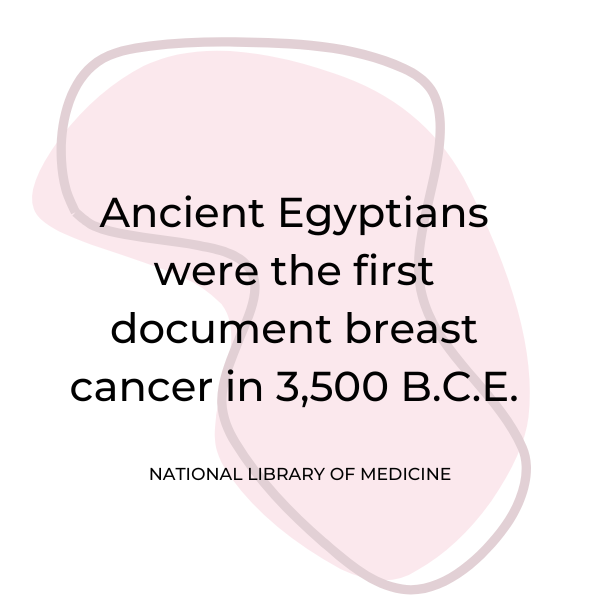
Looking back, is there anything you wish you had known at the start of your journey toward recovery?
Judith Dolgin: Yes – take time to process your emotions, and your trauma, even while you move on physically. I’m working on that now.
Do you have any recommendations for people concerned with their breast health?
Judith Dolgin: YES. If you see something, say something! If something doesn’t feel right, schedule a mammogram immediately. Don’t ever let a doctor just feel you and tell you things are fine. Know that only a biopsy can determine whether something is in fact benign or malignant, so make sure abnormalities are fully evaluated.
Get a second opinion if you want to. Have a medical breast oncologist design your treatment plan. Find surgeons that you like. Push for a biopsy if a mammogram finds something of concern. And, chemo is scary and uncomfortable, but it saves lives. So if your doctor recommends it, please listen. Move quickly, because time is cancer’s friend.
What advice would you give to people with loved ones currently going through breast cancer treatment?
Judith Dolgin: Accept support, for your loved ones and for yourself.
Do you have anything you’d like to say to people who are currently undergoing treatment and recovery?
Judith Dolgin: Focus on getting through this minute.
We are so grateful to Judith for taking the time to detail her journey in such depth and with such candor. And, we’re particularly delighted to release this interview today. The third Friday in October, today October 18th, is National Mammography Day.
This day serves as a reminder and encouragement to women to get screened for breast cancer through receiving regular mammograms, a critical component of early detection. Mammograms, clinical breast exams, and self exams enable you to be proactive with your breast health and increase chances for early detection. Learn more at the National Breast Cancer Foundation website!

